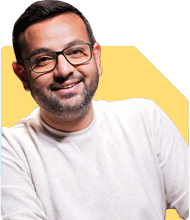Sushil Sukhwani |357 Answers |Ask -Follow
Study Abroad Expert - Answered on Apr 30, 2024

My son is in last year of B. E. (Cyber security) from mumbai college. Want to send him abroad for MS in cyber security can u guide us which country will be best for the above course.
To begin with, thank you for contacting us. I am glad to hear that your son is currently pursuing the final year of his Bachelor of Engineering in Cyber Security and intends pursuing Master of Science (MS) in Cyber Security overseas. As an answer to your query concerning which country is best for the above course, I would like to tell you that the USA, the UK, Australia, Germany, and Canada, provide top-notch education and research possibilities, in turn, making them among the leading destinations to pursue MS programs in cyber security. When deciding on the same, I would recommend that you take into account variables viz., the program standing, experience of the faculty members, linkages with the industry, as well as possibility for internships or work placements.
For more information, you can visit our website.
You may like to see similar questions and answers below
Saurabh Saxena |18 Answers |Ask -Follow
Tech Career Counselling Expert - Answered on Jun 17, 2023
Sushil Sukhwani |357 Answers |Ask -Follow
Study Abroad Expert - Answered on Sep 22, 2023
Sushil Sukhwani |357 Answers |Ask -Follow
Study Abroad Expert - Answered on Nov 02, 2023
Geeta Ratra |125 Answers |Ask -Follow
Visas, Study Abroad Expert - Answered on Jan 03, 2024
Sushil Sukhwani |357 Answers |Ask -Follow
Study Abroad Expert - Answered on Mar 02, 2024
Ramalingam Kalirajan |2801 Answers |Ask -Follow
Mutual Funds, Financial Planning Expert - Answered on May 21, 2024
Krishna Kumar |289 Answers |Ask -Follow
Workplace Expert - Answered on May 21, 2024
Krishna Kumar |289 Answers |Ask -Follow
Workplace Expert - Answered on May 21, 2024
Patrick Dsouza |279 Answers |Ask -Follow
CAT, XAT, CMAT, CET Expert - Answered on May 21, 2024
Patrick Dsouza |279 Answers |Ask -Follow
CAT, XAT, CMAT, CET Expert - Answered on May 21, 2024
Ramalingam Kalirajan |2801 Answers |Ask -Follow
Mutual Funds, Financial Planning Expert - Answered on May 21, 2024
Moneywize |108 Answers |Ask -Follow
Financial Planner - Answered on May 21, 2024
Ramalingam Kalirajan |2801 Answers |Ask -Follow
Mutual Funds, Financial Planning Expert - Answered on May 21, 2024
Ramalingam Kalirajan |2801 Answers |Ask -Follow
Mutual Funds, Financial Planning Expert - Answered on May 21, 2024
Ramalingam Kalirajan |2801 Answers |Ask -Follow
Mutual Funds, Financial Planning Expert - Answered on May 21, 2024

























